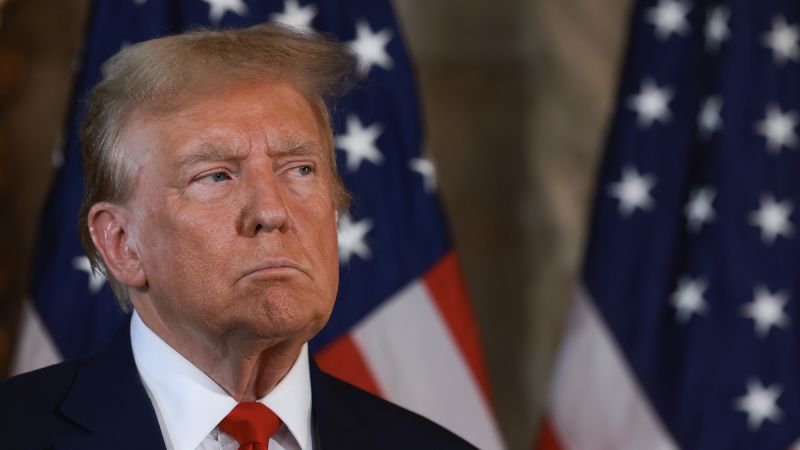Trump Media & Technology Group’s stock is tumbling again after the company announced a massive new influx of shares. The struggling company is rapidly losing money, and a new stock offering could help it stay afloat.
But there’s a downside to going back to the market with new shares: A new public stock offering of 21.5 million shares announced Monday would add more than 15% more stock to the publicly available shares of the Truth Social owner. That would substantially devalue existing shareholders’ stakes — including that of former President Donald Trump.
Shares of TMTG (DJT) fell more than 15% Monday. The stock had rocketed higher in recent months in anticipation of merging a blank-check acquisition company with Trump’s media business. But it has lost more than 60% of its value from its peak on March 26, the day after the merger was completed and it started trading publicly as TMTG.



So not only does each stock holder own less of the company as a percent but the actual value of their stock is also lower.
This is normal for a company, when it releases more stock, as the cononay foes not magically become worth more. What’s odd is releasing more while its already tanking and needing the funds so soon after it floated.
I winder where the money is going?
This typo was hauntingly difficult to parse
Covfefe
Nowhere; it’s not real money. It’s hypothetical money.
Money from new stocks isn’t hypothetical, it’s cash traded for ownership. They just had a successful ipo and then plummeted, so they should have quite a bit of real money. Minting new stock in this situation is basically the opposite of what you’d do if you wanted your share in the company to have value. It’s the behavior of a desperate embezzler who either has no idea how to not get caught or knows they’re going to and wants to take the money and flee immediately
The value is hypothetical. Trumpnvant sell for 6 months. Sonsoneone is getting money when people Bought the shares. It may have gone to the company of shares were diluted, but then why do they need money so quickly?
Wouldn’t people still own the same percentage, but the company itself just own less?
I don’t believe they can just create shares out of thin air. The company would typically own a certain amount of shares the entire time and then sell the ones they own.
So if you had 1% before and the company owned 50%, they might decide to sell half of their shares so they now only own 25% but you still own your 1%. You don’t just magically have 0.5% now.
The reason the shares drop in price when this happens is because it’s a sign that the company is either in financial trouble and seeking for a quick influx of cash or it’s a sign that the company doesn’t have much hope for its future success and wants to sell now before the price naturally starts to go down anyways.
https://www.activefilings.com/information/shares/
It can be either. Calling it a new release is ambiguous. They also call it a new stock offering, which is also ambiguous but is why I presumed dilution.
So… Not quite how it works. The company gets an authorized number of shares which it can then issue out, or sell to shareholders.
If you own 100 shares out of the 1000 they are authorized, you own 10% of the company.
Now if they request and are authorized more shares (which is what happened here), your stake in the company is cut down. Let’s say they get authorized and issue another 1000 shares, bringing them to 2000 total shares. You now only own 5% of the company.
And with these new shares hitting the open market, prices will drop because now there is “more supply than demand” (it’s an easy way to think about it). In theory the whole thing will eventually even out, but that generally doesn’t happen here because the value of the company hasn’t changed.
This whole thing is different compared to a stock split, which affects the price and the number of stocks, but not your overall stake in it. If a company does a 2:1 split, your shares will double, but the price per share will be cut in half. 10 shares at $10 now becomes 20 shares at $5… Your stake is still at $100